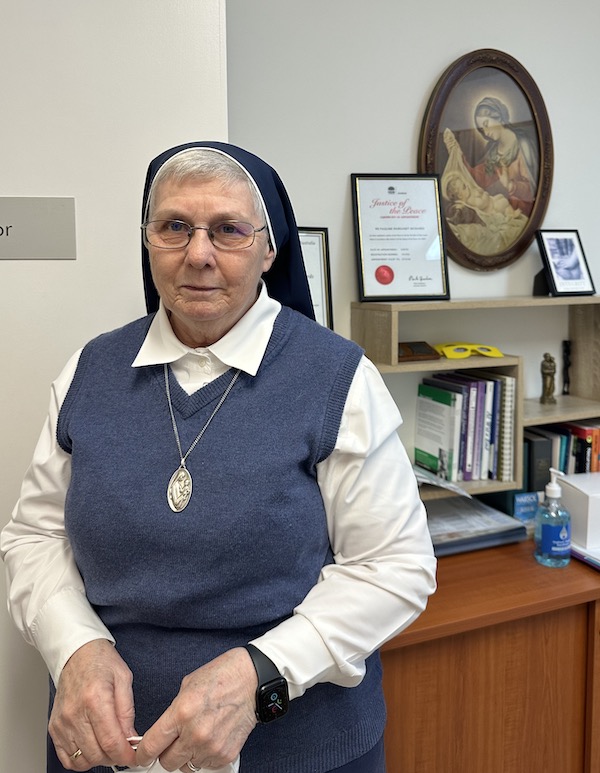Attitudes towards feeding at the end-of-life have changed dramatically in recent years.
It wasn’t long ago that in some quarters we expected feeding would continue right to the end-of-life, even if this became challenging, or involved artificial methods.
But today the goal is to achieve a more natural state as someone moves closer to death.
The loss of desire to eat is natural

The loss of capacity to absorb food happens at the end-of-life and for a period before death, as organs start to shut down. Death can occur a few days after the person stops eating or sometimes even weeks later.
Also, closer to the end, the need of the dying person for hydration, that is drinking water, is lost.
So, neither intravenous feeding nor the use of a drip to hydrate the dying person are emphasised as much as they once were.
To some people this can feel as though we are giving up on life.
Part of the reason for this feeling is because of the ‘technological imperative’ – that if something is possible to do, we feel compelled to do it.
But being led by what’s technically possible, even if unrealistic and invasive, is not going to bring a person back to life. It’s simply going to prolong death – and in a way that distorts their end.
It leads to situations where someone can be loaded with glucose and saline, and so appear not to be dying. In fact, this can’t be sustained long term. And eventually, it can be emotionally distressing for those at the bedside, when the moment comes for these to be stopped.
Yet the sense of unrealistic pressure to keep a person alive as long as possible is common.
Confusion can come from a vague awareness of the doctors’ Hippocratic Oath, to protect life. It sits alongside the belief that we have a legal, moral, and or theological obligation to preserve life no matter what.
Yet those with religious qualifications can point out the irrational and unnatural position that extremes can lead to, while at the same time arguing for the sanctity of life.

In the US, hospital chaplain and author Hank Dunn said: “Start an IV for hydration or insert a feeding tube and the chances of a gentle passing are greatly reduced.”
Feeding someone at the time when they can no longer absorb food – or even fluids for that matter – will make their end more difficult, he explained.
In Sydney, NSW Director of Nursing at St Joseph’s Aged Care Kensington and Provincial of the Our Lady of the Sacred Heart Convents, Sr Pauline Richards, makes the same point.
“I have had to calm the fears of junior staff over this issue on occasions,” she explained.
“Staff with the responsibility of feeding patients can sometimes become very stressed about weight loss. When our patients can no longer eat, and their weight drops some of our staff have become anxious that when we’re reviewed during spot visits by officers of the Aged Care Quality Commission, the weight loss will be misunderstood, and our accreditation threatened.”
The Aged Care Quality and Safety Commission is Australia’s single national “end to end regulator of aged care services, and the primary point of contact for consumers and providers in relation to quality and safety in aged care.” It took over the role from the Australian Aged Care Quality Agency, in January 2019.
Dementia is a terminal illness and like other terminal illnesses there is an end stage.

Sr Pauline pointed out a subtle but important difference between two situations. There is the person who has lost capacity, is not aware of those around them and yet when offered food, will open their mouth to eat. They swallow the food and open their mouth again, then again. It can almost seem like a reflex reaction.
Sr Pauline pointed out a subtle but important difference between two situations. There is the person who has lost capacity, is not aware of those around them and yet when offered food, will open their mouth to eat. They swallow the food and open their mouth again, then again. It can almost seem like a reflex reaction.
Sr Pauline pointed out a subtle but important difference between two situations. There is the person who has lost capacity, is not aware of those around them and yet when offered food, will open their mouth to eat. They swallow the food and open their mouth again, then again. It can almost seem like a reflex reaction.
“When someone has lost all their faculties, but they still take a mouthful of food when this is offered, it’s reasonable to assume that even though they’ve lost most other enjoyments in life, that they’re still able to enjoy their food.
“They want to eat – that tells us they want life. And that simple enjoyment alone is enough to say they have a quality of life,” Sr Pauline said.
Several family members discussing this with Good Grief!, explained how unexpectedly comforted they were by being able to feed an elderly person they loved. This comes at a time when conversation and recognition have gone. Life is drawing to a close, opportunities to be with the person will soon be gone forever. So the intimacy of feeding someone becomes significant, and often treasured.
Sr Pauline contrasted this to another scenario.
“When someone has progressed to the end stage of dementia – which is terminal, stops accepting the spoonful of food, and does this consistently, then the natural thing is not to force the issue. We would not force someone with cancer at the dying stage to eat and drink”, Sr Pauline explained.
The feeding needs of people at the end-of-life is Part 1 of the three part series, Feeding at the end-of-life.
Read Part 2: Malnutrition in the elderly here, and Part 3: The role of supplements, here.
